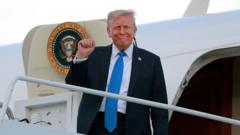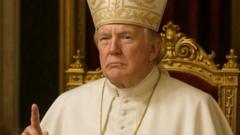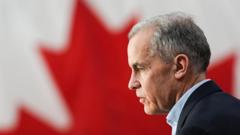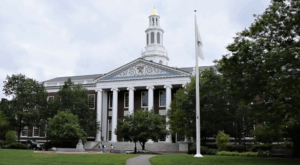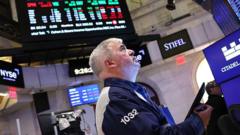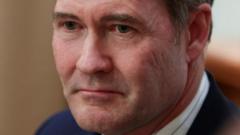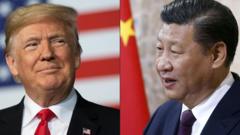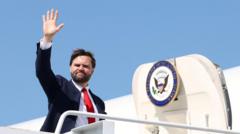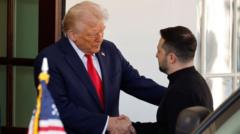On his first day back in office, former President Donald Trump shocked many by issuing sweeping pardons to those involved in the January 6, 2021, Capitol riots. The controversial move drew praise from his supporters and outrage from critics, suggesting a more profound national divide over the events of that day and their aftermath.
Trump's Mass Pardons for Jan 6 Rioters Spark Controversy and Celebration
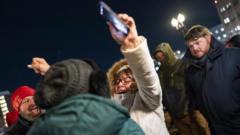
Trump's Mass Pardons for Jan 6 Rioters Spark Controversy and Celebration
Former President Donald Trump issues sweeping pardons to rioters arrested after the January 6 Capitol attack, igniting mixed reactions across the nation.
After weeks of speculation regarding Trump's approach to the January 6 defendants, it became clear that he intended to grant broad clemency, including pardons and commutations. This decision effectively released many individuals already serving sentences related to the most extensive criminal investigation in U.S. history. Trump's pardons did not include monetary compensation, a demand of some penalties pushed by advocacy groups.
"I believe what has happened to these individuals is outrageous," Trump stated during a press conference after signing the order. He asserted that those arrested had been treated unjustly, and this sentiment resonated with many of his supporters. Social media accounts of convicted rioters celebrated their newfound freedom, as families eagerly awaited reunions with their loved ones released from prison.
One notable release was Rachel Powell, facing a sentence of over four years for her role in the riot. She expressed her deep gratitude to Trump, as her release meant she would be home in time for her son's birthday. "He’s a bigger blessing to me than I could ever imagine," said Powell.
For legal analysts and policy experts, however, the scale of Trump's clemency decision was shocking. Many anticipated differentiating between violent offenders and non-violent participants. "It's upsetting to see him take action to pardon violent criminals," remarked Lisa Gilbert, co-president of Public Citizen, a progressive organization.
While an estimated 1,583 individuals were arrested concerning the riot, the pardons that day indicated forthcoming challenges for ongoing investigations. The Justice Department reported a significant number of assault charges were pending against rioters, and the FBI was still pursuing multiple suspects.
Despite the political ramifications of his decision, Trump's actions fostered unity among his supporters, who labeled incarcerated rioters as "J6 hostages" and "political prisoners." They viewed the pardons as rectifying what they believed were politically motivated penalties. In contrast, many Americans, including law enforcement officials, viewed this blanket clemency as a grave misstep and a signal of condoning political violence.
With Trump's appointment of Ed Martin as acting U.S. attorney for Washington, the focus on cases related to the riot shifted dramatically. Critics highlighted Martin's history as a pro-Trump rally organizer and his disapproval of the investigations.
As the dust settles on this unprecedented act, experts warn that the release of individuals tied to far-right extremist groups may reignite dormant tensions, potentially reshaping the future of fringe movements.
Looking ahead, the ramifications of Trump’s pardons echo not only within the political realm but also might impact the dynamics of radical groups como Proud Boys and Oath Keepers, which may attempt to regain their footing in the wake of these clemencies.
"I believe what has happened to these individuals is outrageous," Trump stated during a press conference after signing the order. He asserted that those arrested had been treated unjustly, and this sentiment resonated with many of his supporters. Social media accounts of convicted rioters celebrated their newfound freedom, as families eagerly awaited reunions with their loved ones released from prison.
One notable release was Rachel Powell, facing a sentence of over four years for her role in the riot. She expressed her deep gratitude to Trump, as her release meant she would be home in time for her son's birthday. "He’s a bigger blessing to me than I could ever imagine," said Powell.
For legal analysts and policy experts, however, the scale of Trump's clemency decision was shocking. Many anticipated differentiating between violent offenders and non-violent participants. "It's upsetting to see him take action to pardon violent criminals," remarked Lisa Gilbert, co-president of Public Citizen, a progressive organization.
While an estimated 1,583 individuals were arrested concerning the riot, the pardons that day indicated forthcoming challenges for ongoing investigations. The Justice Department reported a significant number of assault charges were pending against rioters, and the FBI was still pursuing multiple suspects.
Despite the political ramifications of his decision, Trump's actions fostered unity among his supporters, who labeled incarcerated rioters as "J6 hostages" and "political prisoners." They viewed the pardons as rectifying what they believed were politically motivated penalties. In contrast, many Americans, including law enforcement officials, viewed this blanket clemency as a grave misstep and a signal of condoning political violence.
With Trump's appointment of Ed Martin as acting U.S. attorney for Washington, the focus on cases related to the riot shifted dramatically. Critics highlighted Martin's history as a pro-Trump rally organizer and his disapproval of the investigations.
As the dust settles on this unprecedented act, experts warn that the release of individuals tied to far-right extremist groups may reignite dormant tensions, potentially reshaping the future of fringe movements.
Looking ahead, the ramifications of Trump’s pardons echo not only within the political realm but also might impact the dynamics of radical groups como Proud Boys and Oath Keepers, which may attempt to regain their footing in the wake of these clemencies.

